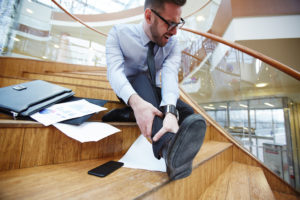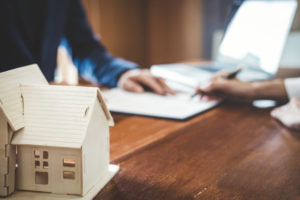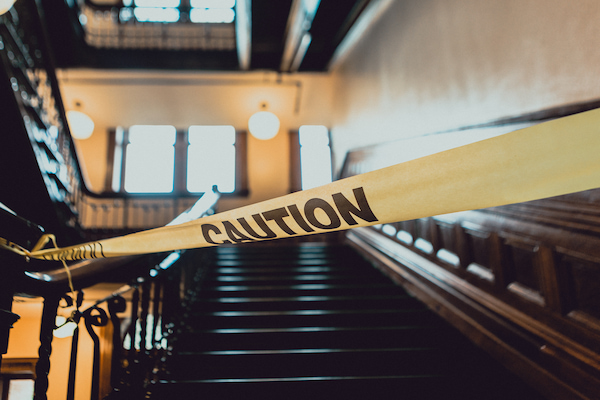A premises liability case is one that arises when the owner or controller of a property is negligent in their maintenance of the property. This negligence creates a hazardous or defective condition that causes injury to a person who was invited onto the property. So, what happens if I am injured on someone else’s property?
In order to establish a successful premises liability case, the injured party will need to prove the four elements of a prima facie case of negligence:
- The property owner owed you a duty of care.
- The property owner breached that duty by negligently maintaining the property, creating a hazardous or defective condition.
- You suffered injuries as a result of the hazardous condition.
- Your injuries caused you to suffer harm in the form of medical bills, lost wages, etc.
Property owners are required to inspect their premises and take reasonable steps to maintain the safety and security of the premises for people who are on their property for their actual or potential economic benefit. In a premises liability case, it is the actual safety of the property that is in question, not what the owner has or has not done to maintain the property, as the condition must have caused an injury.
So, what is premises liability? If the property owner knew or should have known about a hazardous condition on their property that caused you to suffer an injury and failed to correct it, you may be to hold them liable for compensation for the injuries you sustained. Read on to discover how.

Who Do Property Owners Owe a Duty of Care to?
What happens if you are injured on another person’s property? The answer is: it depends. Property owners owe the highest duty of care to their invitees, who are legally on the property for the actual or potential economic benefit of the property owner.
For example, if you are walking down the stairs of your apartment building (where you pay rent), and your trip on a stair that was improperly maintained, you would be entitled to compensation for any injuries caused by your fall.
Social Guests
Social guests of a property owner are considered licensees, as are mail carriers and other people too who the property owner has granted permission to lawfully enter the property. The property owner does not owe licensees a duty to inspect but does still owe them a duty to keep them reasonably safe while on the premises.
They also owe them a duty to warn them of known dangers that are not obvious and provide guidance on how to avoid these dangers. For example, if the owner is aware that one of the ceramic handles on the sink is cracked, they owe a duty to their guests to warn them of this condition and provide guidance to avoid that handle so as to avoid injury.
Trespassers
Trespassers are owed the lowest duty of care, as they are not considered to be on the property lawfully. The only duty that a property owner owes a trespasser is the duty to avoid causing the trespasser willful or wanton harm.
An exception to this rule is if a property owner is aware that people frequently trespass on their land, perhaps using the property as a shortcut to their destination. If this is the case, the trespassers are elevated in status to known trespassers.
If the property owner is aware of a hazardous condition that may cause harm to the known trespassers, they are required to provide a warning of the condition on the property. Simply posting a sign warning of the hazardous condition satisfies this requirement.
What Types of Evidence Can Be Used to Establish a Successful Premises Liability Case?
Proving a successful premises liability case can be tricky and requires solid evidence to maintain the existence of an unsafe condition on a property that was the cause of your injury. Preserving the evidence is particularly time-sensitive in premises liability cases, as properties will normally try to rectify an unsafe condition immediately once an injury caused by it is brought to their attention.
The following are excellent examples of evidence that can help establish the existence of an unsafe condition and the duty of care owed.
1. Pictures
Capturing pictures is extremely important in premises liability cases. Capture the hazardous condition that caused your injury from as many angles as possible, such as the wet floor or defective stairs which caused your accident and injuries.
Time is of the essence, as capturing the conditions you were exposed to when the accident occurred will provide the strongest evidence to support your case. You also do not want to leave time for the potential defendant to correct the condition, allowing them to say that there is no hazard present.
2. Lease Agreements, Property Records, or Receipts
Gathering these documents will help prove that you were on the premises as an invitee of the property owner and were therefore owed the highest duty of care to inspect the property and maintain it to be free of hazards.
For example, if you were injured in a parking lot in which you paid to park, you should keep a copy of your receipt to show that you were on the premises for the actual or potential economic benefit of the property owner.

3. Accident Reports
When you are injured on a property, you should make an effort to file a formal accident report with the management of the property or the police. Be sure to obtain a copy of this report to use as evidence in your case.
If you are unable to file a formal report, use the notes application on your smartphone to document important details relating to the incident, including the location of the incident on the premises, a thorough description of the facts, date and time, and the names and position of the premises representative that you speak to regarding the incident.
4. Witnesses
Identifying witnesses to the scene of your accident is crucial to recreating the scene in the creation of your case. Try to identify anyone who might have been an eyewitness to your incident and get their contact information at the scene. Try to get a brief statement written down, if possible, at the scene, as it will be freshest in their mind. Be sure to save their contact information somewhere safe where you will be able to find it in the future.
5. Medical Records and Bills
When you seek treatment for your injuries, be sure to keep records of your treatments in chronological order. While an attorney’s office will be able to procure these records, it can take a long time to obtain them. Having a copy to provide to your attorney immediately will allow them to begin building your case right away.
If you receive any bills from the hospital, be sure to save these as well. If you have any past-due bills, contact your provider to set up a repayment plan to keep them from going into collections. Be sure to record this information as well, so that this can be included in the damages sought on your behalf.
6. Pay Stubs and Tax Returns
Be sure to gather your pay stubs for the time leading up to your injury, as well as your tax return. This will show how much your injury may have cost you if you are unable to return to work for an extended period of time. If your injuries cause you to adjust your hours to part-time, this will also be considered in how much to award you in damages for your cause.
How Carey Leisure Carney Can Help
Premises liability cases are difficult because of the specific rules on who is owed a duty of care by the owner or controller of the premises. If you have been injured on someone else’s property due to an unsafe or defective condition and find yourself asking what is premises liability, contact the law offices of Carey Leisure Carney. Our team will be able to assist you through the process of seeking the treatment you need, building your case, and working toward procuring a settlement that will help you get back to your normal life. Contact us today for a free consultation.
